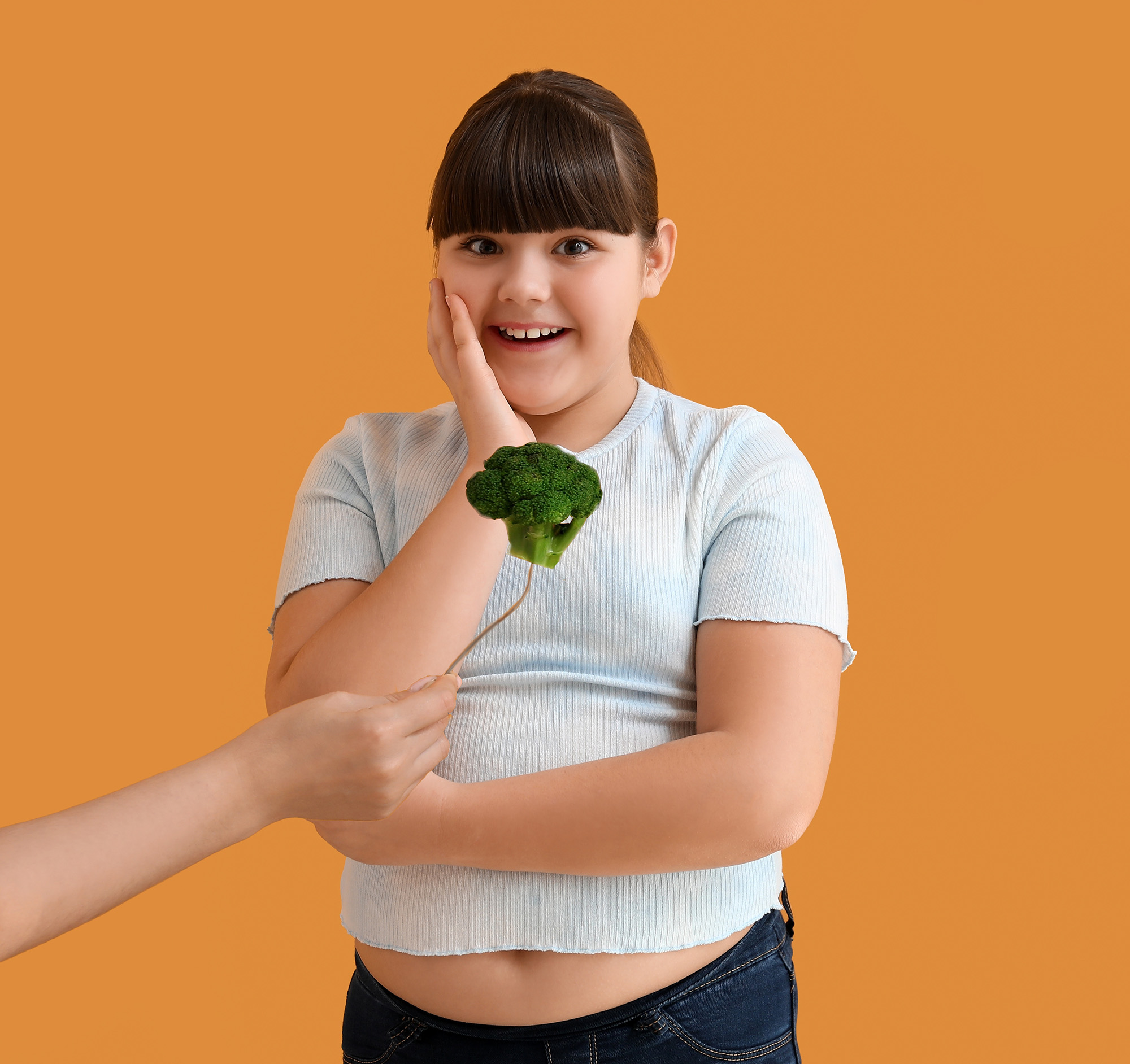Helping Kids Lose Weight the Healthy Way: Why Vegetables Matter
Hey Nouri Team I
July 31, 2025
5


Key takeaways
.svg)
.svg)
.svg)
Most Parents Struggle With Picky Eating
If you’ve ever hidden peas under mashed potatoes or begged your child to “just try one bite of broccoli,” you’re not alone. For many families, getting kids to eat vegetables feels like the most frustrating part of parenting. You want the best for your child’s health, but mealtimes can quickly spiral into stress.
One mom in our community put it perfectly: “I felt like every dinner was a battle. No matter what I cooked, the vegetables sat untouched. I started to dread sitting down at the table.”
The truth is, this is a universal struggle. Kids are wired to prefer sweet and familiar tastes, and vegetables often don’t make the cut at first. It’s not a sign you’re failing — it’s just part of how kids learn to eat. Research backs this up: as one study put it, “children often require 8 to 15 exposures to a new vegetable before acceptance occurs” (Cooke, 2007).
The Common Approaches That Never Work
When parents are exhausted, it’s natural to reach for quick fixes. Maybe you’ve tried some of these yourself: “Eat three bites and you’ll get dessert.” Or “No screen time until you finish your spinach.” Or even the classic “Just two bites for Mommy.”
I bet you’ve noticed — it doesn’t work. These tactics might get a bite or two in the moment, but they don’t build trust or long-term habits. In fact, research published in Appetite concluded: “Parental pressure to eat is consistently associated with lower intake of fruits and vegetables and greater food fussiness” (Galloway et al., 2006).
If you’ve tried these things and felt defeated, you’re not alone. Almost every parent has. The key is knowing there’s a better way forward.
The Secret Sauce — What Actually Works
At Hey Nouri, we’ve seen over and over again that when vegetables are presented in the right way, kids don’t just tolerate them — they start asking for them. Our coaches work directly with both parents and children, giving families practical tools to make vegetables normal, fun, and even exciting.
It starts with small shifts. Instead of saying, “Eat your veggies,” we encourage parents to simply put one vegetable on the plate every day, no pressure. We help families use “learning bites” — tiny tastes offered outside mealtime — to build familiarity. For younger kids, we show parents how to make tasting rewarding with praise or stickers. For teens, we give them ownership: seasoning, cooking, or plating the vegetables themselves.
We also talk about why vegetables matter in ways that connect with kids. Instead of dry nutrition talk, we explain that broccoli is a brain booster, carrots are eye power, and spinach is super strength food. When kids feel like vegetables give them “superpowers,” they’re far more open to eating them.
And yes — most of our patients start surprising their parents. One mom recently laughed, “I never thought I’d hear the words, ‘Can we have more broccoli?’ at my dinner table.” But with the right coaching, that’s exactly what happens.
As the American Journal of Clinical Nutrition summarized: “Repeated offering, modeling, and non-coercive encouragement remain the most effective strategies to increase vegetable intake in children” (Birch & Ventura, 2009).
A Healthier Table Starts Here
Helping kids eat vegetables isn’t about tricks or battles. It’s about creating a safe, positive environment and having the right support along the way. With guidance from Nouri’s pediatric dietitians and coaches, families move from mealtime stress to mealtime wins. Kids learn to love the foods that fuel their growth — and parents feel the relief of knowing their child is thriving.
If you’re ready for vegetables to stop being the enemy and start being part of your child’s health story, Nouri can help. Book a free consultation today and see how we can make vegetables a normal, happy part of your family’s routine.
References
- Cooke L. The importance of exposure for healthy eating in childhood: a review. J Hum Nutr Diet. 2007;20(4):294-301.
- Galloway AT, Fiorito LM, Francis LA, Birch LL. “Parental pressure, dietary patterns, and weight status among girls who are ‘picky eaters.’” Appetite. 2006;46(1):33-40.
- Birch LL, Ventura AK. Preventing childhood obesity: what works? Am J Clin Nutr. 2009;91(5):1499S–1505S.
See if your qualify
Take our online intake assessment and tailor your child’s weight loss plan in <5 minutes.


Tips for Getting Started on Your Journey
Practical advice and evidence-based insights to help you support your child’s health journey with confidence
